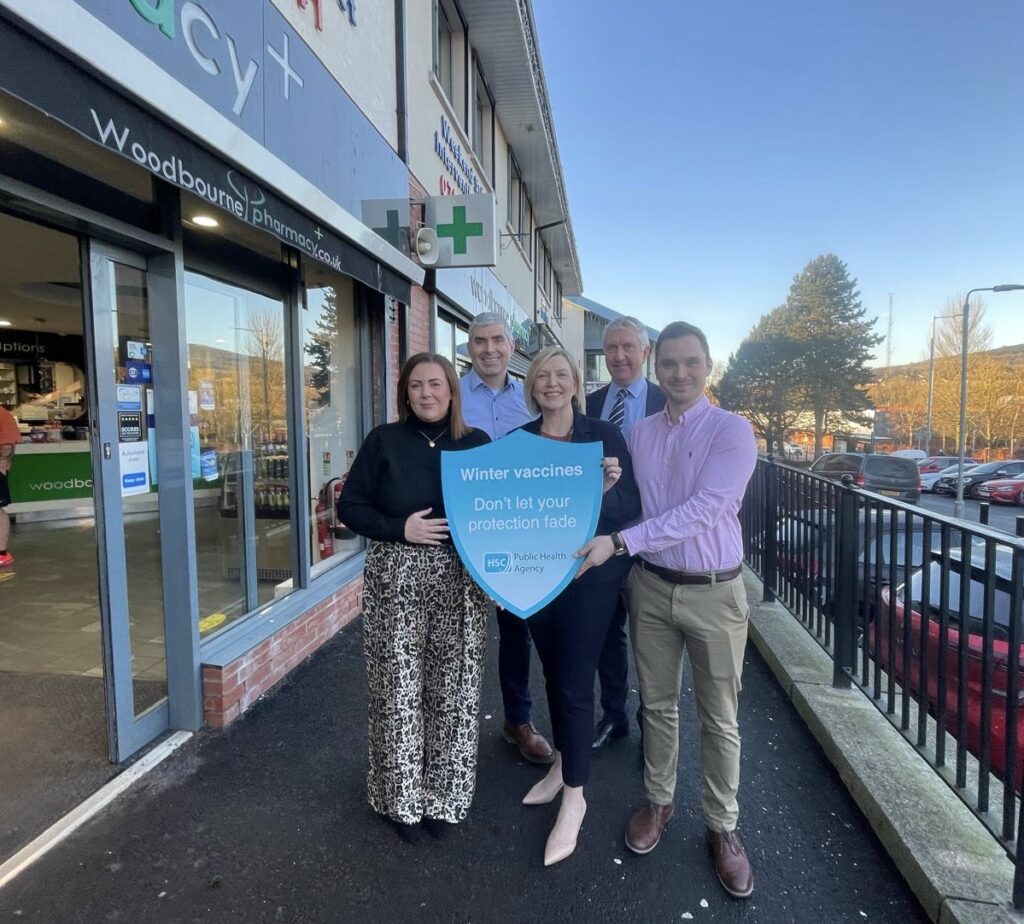The representative body for Community Pharmacy in Northern Ireland, CPNI, has told MLAs at Stormont that community pharmacy owners are caught in a difficult position. While community pharmacies are playing an increased role in relieving health service pressures, CPNI has warned the politicians that a deepening financial crisis is threatening the existence of many local community pharmacies and undermining the role they could play.
Speaking to an all-party group of elected members at the Northern Ireland Assembly, pharmacy leaders have laid out the opportunity to ramp-up community-based healthcare through greater use of their clinical expertise; however, they say that a long-running funding shortfall is leaving pharmacy owners struggling to pay their medicine wholesalers and is leading to cuts in staffing and opening hours in an attempt to reduce spiralling overheads.
Representatives from CPNI were briefing politicians at Stormont on Tuesday 25 March on the Community Pharmacy Strategic Plan for 2030. They have worked closely with the Department of Health and SPPG officials to expand and enhance community-based clinical services such as vaccinations, advice and treatment of sore throat, shingles and urinary tract infections and provision of emergency contraception.
While outlining the many advantages of these clinical developments, CPNI has called for political support to bridge a deepening financial gap which threatens to undermine the existence of community pharmacy services.
One community pharmacy owner, Ian Gabbie, from Killyleagh, told the group of politicians that his family-run pharmacy is committed to increasing the role played by community pharmacy in reducing the pressure on GPs and hospital emergency departments.
Mr Gabbie is a passionate community pharmacist, and both his son and daughter are now working alongside him as pharmacists. However, he said that they work extended hours in order to keep staffing costs to a minimum.
Mr Gabbie explained, “Our efforts in Killyleagh are helping to improve health outcomes and reduce pressure on other critical parts of the health service. Regrettably, this is not sustainable with the current funding model. Every month is a financial juggling act to ensure I have the funds to pay my staff and drug wholesalers.
“We have made redundancies and recently reduced our opening times from a full day on a Saturday to just three hours, in an effort to protect our core Monday to Friday services.
“As a sector, a sense of pride in our community pharmacies drives us to prop up our businesses, with the hope that common sense funding will prevail.”
Gerard Greene, Chief Executive of Community Pharmacy NI said, “The benefits of increasing the clinical expertise of community pharmacists are undeniable: everyone, including the Health Minister has recognised the value and contribution of community pharmacy to health services.
“However, the fact remains that every single month, these individual pharmacy owners are struggling to work within the extremely stressful financial constraints of Department of Health funding model. They’re reducing opening hours, cutting staff and juggling payments to drug wholesalers in order to maintain a safe supply of vital medicines and other services.
“We have welcomed the opportunity to discuss this with politicians. We have sought their support in calling for the Minister to review the financial model, and to work with us to agree – together – a model which will stabilize the sector and allow it to fulfil its potential to transform healthcare in Northern Ireland.”



